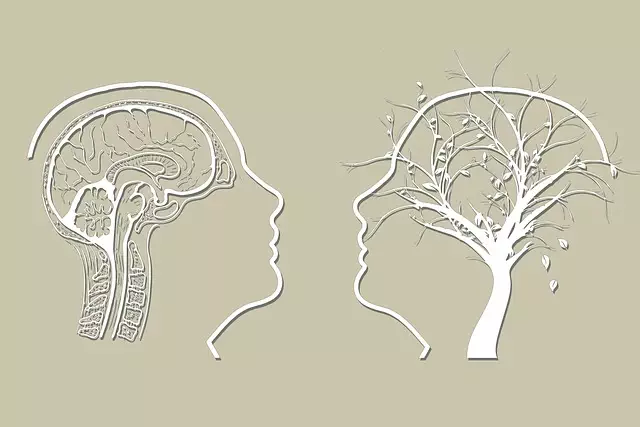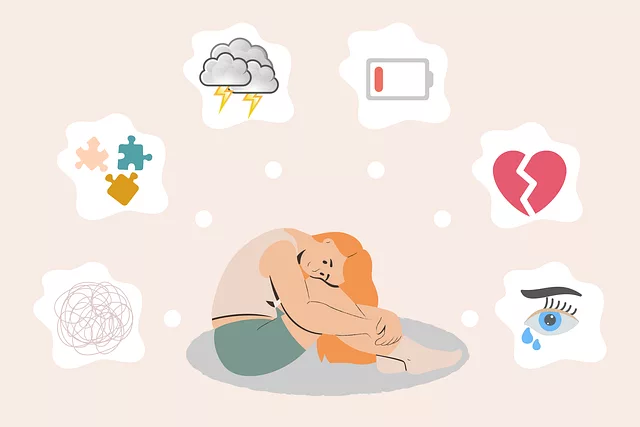Kaiser Permanente Littleton prioritizes holistic care through its comprehensive behavioral health services, accessible via the Kaiser Permanente behavioral health phone number. Cultural competency training equips healthcare providers with skills to serve diverse communities effectively, empowering them to offer tailored Mental Health Education Programs and a Mental Wellness Podcast Series. This multifaceted approach ensures patients receive personalized, respectful treatment, enhancing overall wellness and patient-provider relationships.
“Cultural competency in healthcare is no longer a nice-to-have, but an essential requirement. This article explores the critical role of cultural competency training for healthcare providers, focusing on the impact of behavioral health integration. We examine Kaiser Permanente’s innovative approach in Littleton, highlighting their commitment to community and diversity. Effective training methods are analyzed, along with the tangible benefits of enhanced patient outcomes through cultural sensitivity. For more information on behavioral health services, visit the Kaiser Permanente phone number for Littleton.”
- Understanding Cultural Competency in Healthcare: A Necessary Approach
- The Role of Behavioral Health in Patient Care
- Kaiser Permanente Littleton: A Focus on Community and Diversity
- Training Methods for Effective Cultural Competency Acquisition
- Enhancing Patient Outcomes through Cultural Sensitivity
Understanding Cultural Competency in Healthcare: A Necessary Approach

In today’s diverse healthcare landscape, cultural competency is no longer an optional consideration but a necessary approach. It involves understanding and respecting the unique cultural backgrounds, beliefs, and values of patients, which can significantly impact their health outcomes. At organizations like Kaiser Permanente, behavioral health phone numbers in Littleton and beyond serve as a critical link, ensuring that individuals from various cultural communities receive care tailored to their specific needs. This personalized approach is built on the foundation of empathy, where healthcare providers actively listen, adapt, and communicate effectively, fostering trust and positive interactions.
Cultural competency training equips healthcare professionals with essential tools for navigating these complex dynamics. It involves learning effective communication strategies, recognizing unconscious biases, and incorporating cultural sensitivity into clinical practices. By promoting positive thinking and empathy-building techniques, these programs aim to boost provider confidence in serving diverse populations. Ultimately, this holistic approach not only improves patient satisfaction but also encourages proactive engagement in preventive care, reflecting a deeper understanding of the interconnectedness between cultural context and overall well-being.
The Role of Behavioral Health in Patient Care

Behavioral health plays a pivotal role in enhancing patient care, especially within healthcare systems like Kaiser Permanente. The integration of mental health services and mood management strategies has become increasingly recognized as essential for overall wellness. By addressing patients’ emotional and psychological needs, behavioral health professionals contribute to better health outcomes and improved quality of life. This is particularly significant in diverse communities where cultural competency is crucial.
For instance, the Kaiser Permanente behavioral health phone number in Littleton connects individuals with expert support, offering not just crisis intervention but also long-term solutions. Mental Health Education Programs Design tailored for different populations can foster positive thinking and resilience, empowering patients to manage stress, anxiety, or depression effectively. Such initiatives ensure that healthcare providers are equipped to offer comprehensive care, considering both the physical and mental aspects of well-being.
Kaiser Permanente Littleton: A Focus on Community and Diversity

Kaiser Permanente Littleton stands as a beacon of cultural competency within the healthcare sector, emphasizing community engagement and diversity. This commitment is evident in their comprehensive training programs designed to enhance interactions between patients from various backgrounds and healthcare providers. Through innovative initiatives, Kaiser Permanente Littleton fosters an environment where empathy is not just taught but cultivated. Their focus extends beyond clinical skills, delving into behavioral health aspects, ensuring a holistic approach to care.
The organization actively promotes strategies for building empathy, recognizing the profound impact it has on patient outcomes, especially in addressing mental wellness concerns. This dedication is further reflected in their Mental Wellness Podcast Series Production, offering valuable resources and insights that contribute to the ongoing dialogue on mental health within the community. By integrating these initiatives, Kaiser Permanente Littleton not only improves patient care but also creates a more inclusive healthcare ecosystem, catering to the unique needs of every individual.
Training Methods for Effective Cultural Competency Acquisition

Cultural competency training for healthcare providers involves a multifaceted approach to ensure effective acquisition of skills. Interactive workshops, case studies, and role-playing scenarios are powerful tools that allow professionals to immerse themselves in diverse cultural contexts. These methods encourage active participation, fostering an understanding of unconscious biases and promoting empathetic communication. For instance, a Kaiser Permanente behavioral health phone number Littleton initiative might feature simulations where providers navigate complex patient interactions, considering cultural nuances and offering tailored care.
Complementing these interactive sessions are educational resources that delve into specific cultural topics, such as Mental Health Policy Analysis and Advocacy or the development of Public Awareness Campaigns for diverse communities. Mindfulness meditation practices can also be incorporated to enhance self-awareness, enabling providers to better perceive their own cultural lenses and respond sensitively to patients from different backgrounds. Through a combination of these training methods, healthcare professionals can gain the necessary tools to provide culturally competent care.
Enhancing Patient Outcomes through Cultural Sensitivity

In today’s diverse healthcare landscape, cultural sensitivity is a game-changer when it comes to enhancing patient outcomes and improving care quality. Cultural competency training equips healthcare providers with the skills to navigate complex social and cultural nuances, ensuring every patient receives personalized and respectful treatment. By recognizing and appreciating different cultural backgrounds, beliefs, and values, mental health professionals can create a supportive environment for individuals seeking behavioral health services. This is especially relevant when considering organizations like Kaiser Permanente, which operates various facilities, including a behavioral health phone number in Littleton, dedicated to serving diverse communities.
The integration of cultural sensitivity in mental healthcare practice enables providers to offer more effective coping skills development tailored to individual needs. It fosters open communication, encourages trust, and promotes better patient engagement. Studies have shown that patients feel more satisfied and are more likely to adhere to treatment plans when healthcare providers demonstrate a genuine understanding of their cultural context. This approach not only improves treatment outcomes but also strengthens the patient-provider relationship. Moreover, organizations can organize stress management workshops or similar initiatives to empower individuals with additional coping mechanisms while ensuring cultural sensitivity remains at the core of these programs.
Healthcare provider cultural competency training is not just a best practice; it’s a necessity in today’s diverse and interconnected world. As highlighted by Kaiser Permanente Littleton’s commitment to community and diversity, organizations like theirs are setting benchmarks for culturally sensitive care. By integrating behavioral health services and employing innovative training methods, healthcare providers can enhance patient outcomes and foster stronger, more inclusive communities. For those seeking guidance, the insights shared in this article and the case study of Kaiser Permanente Littleton offer a robust starting point. To learn more about their behavioral health services, visit the Kaiser Permanente behavioral health phone number Littleton for personalized support.






